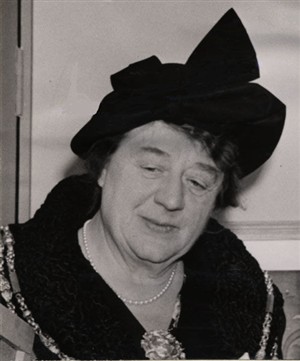As a young woman, Dorothy Stringer sang under the direction of Sir Henry Wood and was a
lifelong member of St Bartholomew’s Church, singing in the choir. An accomplished singer
and pianist, she regularly performed to wounded soldiers recuperating at the Royal Pavilion,
and Brighton General Hospital during the first world war. Before World War II she was a keen
bowls and tennis player.
Dorothy Stringer joined the Council’s Education Committee in 1923 and served on it for 50
years, during this time never missing a meeting! She was also the first female Chair! She was
also a member of the Brighton Hospital Committee and was a keen educationalist and public
servant.

First elected to Brighton Council in 1933 as an Independent, she eventually became a
Conservative. Concerned about the welfare of vulnerable people, including children and the
elderly, with a deep understanding of the hardships for working women. In 1952 she became
Mayor of Brighton. In 1955 Dorothy Stringer School was opened and named after her.
In 1960 she was awarded an OBE and became a Freeman of Brighton and was also an
Alderman. By 1964 she was the senior councillor. Continually active and involved in the life
of the town, she opened many local businesses, visiting schools, sporting events, conferences
and exhibitions. In 1968 she was granted the Freedom of The Borough of Brighton, being only
the second woman to have been honoured in this way! By 1969, now in her mid-seventies she
served on an astonishing 40 committees!
Dorothy Stringer died in 1977 and a requiem mass was held for her at St Bartholomew’s Church. Bus number 634 is named after her. She is buried in Brighton Extra Mural Cemetery.
Links to more information:
https://www.mybrightonandhove.org.uk/people/peopfolk/local-folk-196